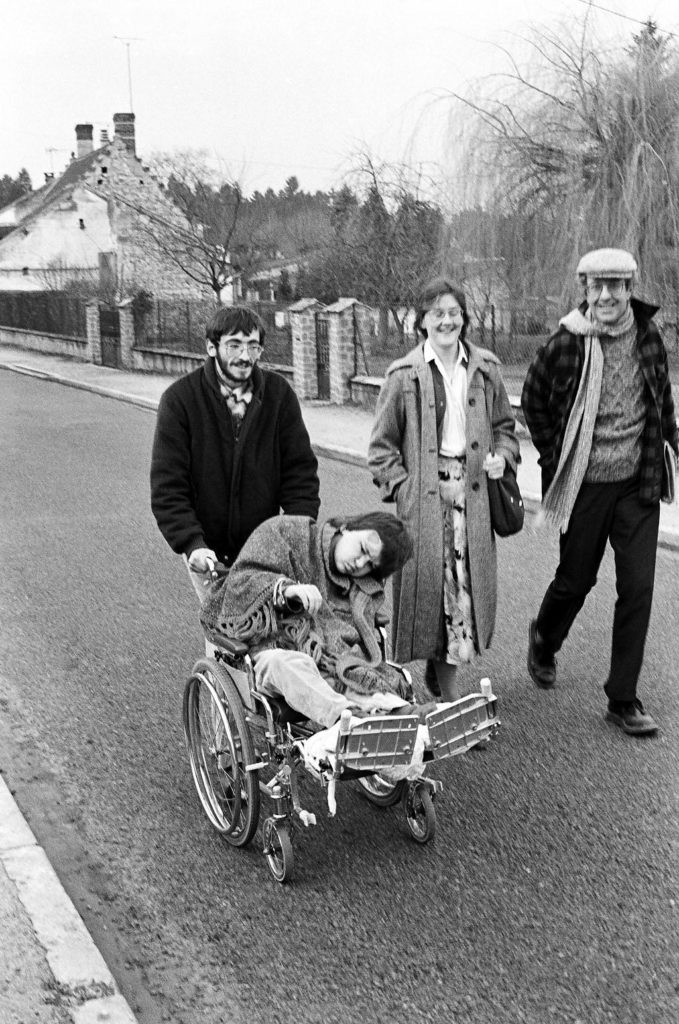Reading: Letter V—Jesus: The Loving God (p. 53 to p. 64)
If anyone should ask you what are the most radical words in the gospel you
need not hesitate to reply: “Love your enemies.” . . . Love for one’s
enemy is the touchstone of being a Christian. (p. 54)
Everything that Jesus has done, said, and undergone is meant to show
us that the love we most long for is given to us by God—not because
we deserved it, but because God is a God of love. (p. 58)
There you have it: the love of God is an unconditional love, and only
that love can empower us to live together without violence. (p. 60)
Normally I begin each post with a single excerpt from the reading that I find meaningful, relevant to the theme of the reading, and that I hope might prompt our discussion. This week is different—and not just because I selected three excerpts. I would encourage you to take a few minutes now, right now, and reflect on these excerpts.
Here is what I found. In these few pages, written to his nephew Marc three days after Easter 1986, we have the heart of Henri’s spiritual message and, as Henri writes, “the heart of the gospel” (p. 61). Henri tells Marc (and us) that only God’s unconditional love will fulfill our heart’s desire. As I mentioned in the Welcome post , these letters were written a year after Henri gave a series of talks that began with the question, “Are you following Jesus? I want you to look at yourself and ask that question. Are you a follower? Am I?” (Following Jesus: Finding Our Way Home in an Age of Anxiety, p. 11). Henri’s message is Jesus’ message—and perhaps that’s why I’ve found Henri to be a reliable spiritual companion on my journey. By reading Henri, I can better follow Jesus. For that reason, here is a fourth excerpt for your reflection, the one from the First Week of Lent.
If you were to ask me point blank, “What does it mean
to you to live spiritually?” I would have to reply,
“Living with Jesus at the center.” (p.7)
The themes that Henri distills here are expanded upon in his writings in the final ten years of his life. His central insight that, like Jesus, we are God’s beloved, while not explicitly stated, is present in this letter, “God loves us not because of anything we’ve done to earn that love, but because God, in total freedom, has decided to love us.” (p. 55) What happens when we don’t know or believe that we are beloved? “The enormous propensity to seek recognition, admiration, popularity, and renown is rooted in the fear that without all this we are worthless” (p. 56) How are love and violence related? “Whether we do violence to others or to ourselves, what we long for in our heart is a nonviolent, peaceful communion, in which we know ourselves to be secure and loved.” (p. 57) What about faith? “(W)hen Jesus talks about faith, he means first of all to trust unreservedly that you are loved, so that you can abandon every false way of obtaining that love. . . . It’s a question of trusting in Gods love.” (p. 58) Henri then ties these ideas together this way: “Jesus sees evil in this world as a lack of trust in God’s love.” (p. 59) So how should we respond? “Jesus challenges us to move in a totally new direction. He asks for a conversion—that is to say, a complete interior turnaround, a transformation.” (p. 61) And that response, that conversion, can begin Here and Now, another of Henri’s themes and the title of a wonderful Henri Nouwen book of brief reflections. Finally, Henri points us to the importance of belonging to a community, the necessity of prayer, and, as a Catholic Christian priest, the Eucharist as “God’s love. . . offered to us not in the abstract but in a wholly concrete form: not as an example or theory, but as food for our daily life.” (p. 63)
Let me share with you a challenge this week’s reading posed for me. Henri says, “you have to begin praying for your enemies.” (p. 62). While I don’t find myself with many “enemies” there are certainly people in my life that I find irritating and aspects of society that I find very disheartening—the rampant polarization in our churches and politics among them. And I find it far easier to try to ignore those people and situations, rather than to pray for them. Perhaps this is the conversion that I am called to this Lent.
Uncharacteristically, this week I shared my reflection on the reading rather than presenting questions for your consideration. Please do not let that stifle your response to this important letter. What did you read and how did it affect you? Were you challenged and how did you respond? Please share what you discover. If my reflection prompts your thinking, you are encouraged to respond, positively or negatively. We’ve had a rich and fruitful conversation this far and I look forward to hearing from many of you this week.
May the Lord give you peace.
Ray


